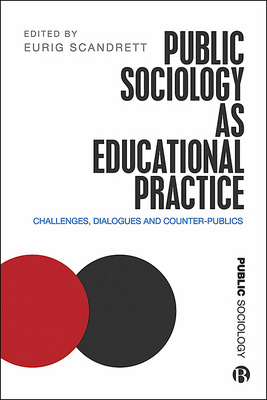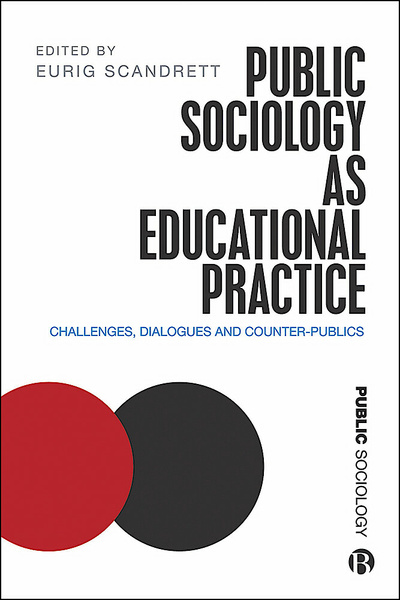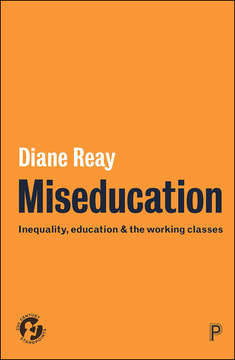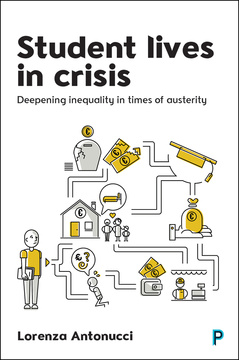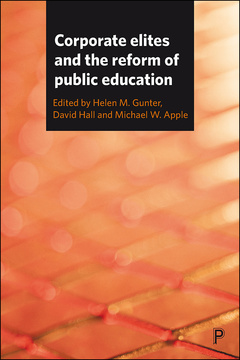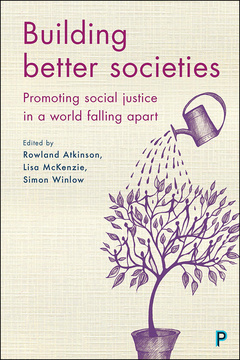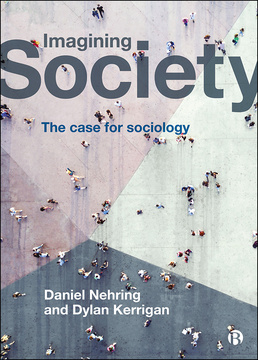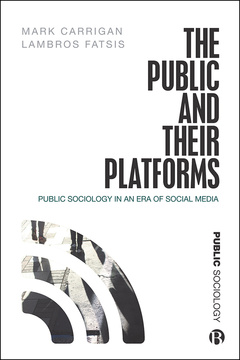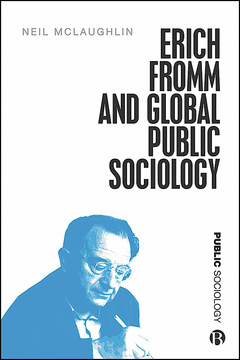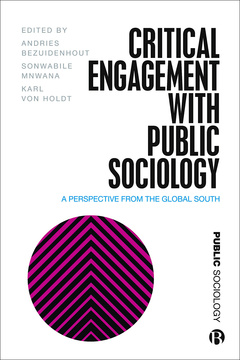Public Sociology As Educational Practice
Challenges, Dialogues and Counter-Publics
Edited by Eurig Scandrett
ISBN
978-1529201420Dimensions
234 x 156 mmImprint
Bristol University PressISBN
978-1529201406Dimensions
234 x 156 mmImprint
Bristol University PressISBN
978-1529201437Imprint
Bristol University PressISBN
978-1529201437Imprint
Bristol University PressIn the media
'Education is dying: Long Live Education!' in Discover Society
Leading academics take a distinctive new approach to the understanding of public sociology education in this perceptive new resource. Through pedagogical case studies and inter-contributor dialogues, they develop and challenge thinking in the field.
Divided into three sections on the publics, knowledges and practices of public sociology education, it looks beyond the boundaries of academia to deliver fresh responses to key disciplinary questions including the purposes and targets of sociological knowledge.
For students, academics and practitioners, it is a timely and thought-provoking contribution to debate about public sociology education.
"This book vividly embodies public sociology as radical education – in dialogue with multiple subaltern publics, engaging with contested knowledges and working in creative ways. Read it and learn!" Laurence Cox, National University of Ireland Maynooth
"Eurig Scandrett and colleagues bring critically important insights from public sociology and transformative education to our understanding of knowledge democracy." Budd Hall, University of Victoria
"An innovative and extremely engaging collection of critical dialogues, this is a must-read for sociologists, educationalists and community and social movement activists alike." Marjorie Mayo, Goldsmiths, University of London
“A provocative dialogical appreciation for public sociology as praxis for contemporary labour politics. Politically stimulating and accessible, this book is a valuable contribution to critical sociology and popular education.” Dip Kapoor, University of Alberta
Eurig Scandrett is Senior Lecturer and Programme Leader in Public Sociology at Queen Margaret University, and an activist in University and College Union Scotland.
Introduction ~ Eurig Scandrett
Section 1 ~ Publics
Provocation I: Class, Gender and Identity: Axes of Structure and Difference in Subaltern Counter-Publics ~ Eurig Scandrett
Mad peoples’ history and identity: education in the construction of mad studies ~ Elaine Ballantyne, Kirsten Maclean, Shirley-anne Collie, Liz Deeming and Esther Fraser
‘Seeing things differently’: gender justice and counter-hegemony in higher education ~
Lesley Orr and Nel Whiting
Domestic abuse survivors: public sociology and the risks of speaking out ~ Julie Young
A Public Sociology for Post-industrial Fife ~ Paul Gilfillan
Public Sociology and the invisibility of class ~ Eurig Scandrett
Dialogue I ~ Eurig Scandrett and Paul Gilfillan
Section 2 ~ Knowledge
Provocation II: ‘Really Useful’ public sociology knowledge ~ Eurig Scandrett
Crossing the Quadrant: Policy Research and Public Sociology ~ Jan Law
Convergences between public sociology, feminist theory and the praxis for refugee and asylum-seeking integration in Scotland ~ Laura Lovin
Young people, alcohol, dialogical methods ~ Emma Wood
Knowledge generated through participatory research with children ~ Maria Giatsi Clausen
English Last: Displaced Publics and Communicating Multilingually as Social Act and Art ~ Alison Phipps, Tawona Sitholé, Naa Densua Tordzro and Gameli Tordzro
The Construction, Role And Influence Of ‘Public Knowledge’ Within Community Planning Partnerships ~ Marion Ellison
Dialogue II ~ Eurig Scandrett, Marion Ellison and Laura Lovin
Section 3 ~ Practices
Provocation III: Public Sociology Practices, Privatising Universities ~ Eurig Scandrett
Precarity as an existential phenomenon within a post-industrial labour market ~ Phil Mignot and Ricky Gee
Student – Public – Sociologist: On dialogue with our first public, and in widening access to higher education ~ Karl Johnson
Experts by experience: Art, identity and the sociological imagination ~ John Docherty-Hughes, Elaine Addington, David Bradley, Linda Brookhouse. Jenny Bunting, Lorna Cosh, John Dane, Robert Lindsay and Christine Raffaelli
Community engagement: cultivating critical awareness ~ Jim Crowther and Mae Shaw
Reflections on five years of critical service learning: is it critical or are we social justice dreamers? ~ Sharon Hutchings and Andrea Lyons Lewis
Trade unionism as collective education ~ Lena Wånggren
Dialogue III ~ Eurig Scandrett, Jim Crowther, Sharon Hutchings, Karl Johnson, Mae Shaw, Lena Wånggren
Conclusion ~ Eurig Scandrett







